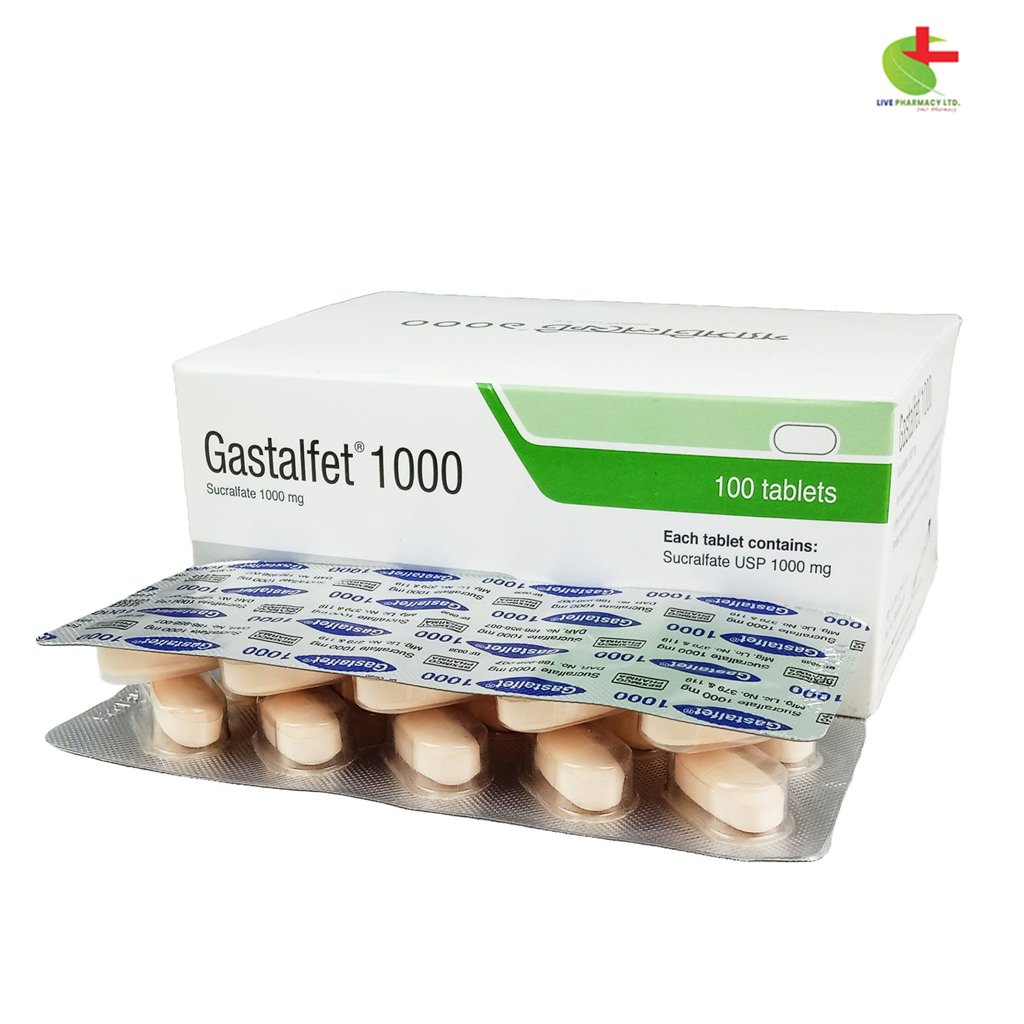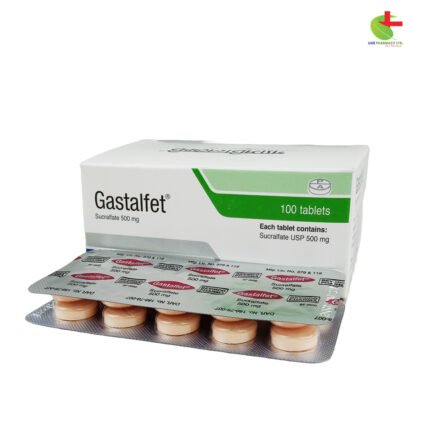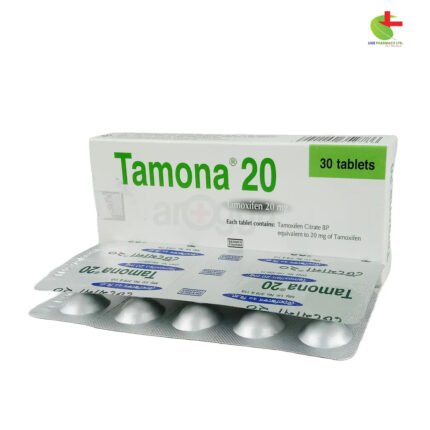Gastalfet 1000
60.00৳ Strip
- Gastalfet is used for treating duodenal and gastric ulcers, chronic gastritis, and preventing gastrointestinal bleeding in critically ill patients.
- Its active ingredient, Sucralfate, forms a protective barrier over ulcer sites, promoting healing while inhibiting pepsin and bile.
- This medication is administered on an empty stomach and may interact with certain drugs, so proper timing and caution are advised.
- Not suitable for individuals with renal impairment or those on dialysis.
 Brand
Brand
|
Beximco Pharmaceuticals Ltd |
|---|---|
 Generics
Generics
|
Sucralfate |
 Type
Type
|
Tablet |
Indications
Gastalfet is prescribed for adults and adolescents over 14 years to manage:
- Duodenal and gastric ulcers
- Chronic gastritis
- Prevention of gastrointestinal bleeding due to stress ulcers in critically ill patients
Pharmacology
Gastalfet contains Sucralfate, which acts locally in the gastrointestinal tract without significant systemic absorption. It forms a protective barrier over ulcer sites, facilitating healing. Sucralfate also inhibits pepsin and bile action, aiding in ulcer treatment.
Dosage
For ulcers and gastritis:
- Adults: Typically, 2 gm twice daily on an empty stomach, or 1 gm four times daily before meals and at bedtime. Maximum daily dose is 8 gm, extendable up to twelve weeks if necessary.
- Pediatrics: Safety in children under 14 is not established.
- Elderly: No special dosage required, but use the lowest effective dose.
For stress ulcer prophylaxis:
- Adults: 1 gm orally or via nasogastric tube 4 to 6 times daily, with a 10 ml water flush to prevent tube clogging. Treatment duration should be tailored to individual risk factors, not exceeding 14 days.
Administration
Gastalfet should be taken on an empty stomach. Avoid antacids within 30 minutes of taking Gastalfet.
Interactions
Gastalfet may reduce the absorption of several drugs, including fluoroquinolones, tetracyclines, ketoconazole, and others. Separate administration by at least two hours. Avoid co-administration with citrate preparations to prevent increased aluminum absorption. Separate from enteral feeds by one hour to avoid bezoar formation.
Contraindications
Contraindicated in patients with a known hypersensitivity to Sucralfate.
Side Effects
Common side effects include headache, nausea, abdominal pain, constipation, diarrhea, and urticaria. Bezoar formation has been observed, particularly in patients with conditions predisposing to bezoars or those receiving tube feedings.
Pregnancy & Lactation
Safety during pregnancy is not established. Use only if clearly needed. Unknown if excreted in breast milk; caution advised for breastfeeding women.
Precautions & Warnings
Use cautiously in patients with renal dysfunction due to the risk of increased aluminum absorption. Not recommended for individuals on dialysis or those with severe renal impairment. Monitor for aluminum accumulation and associated conditions. Avoid other aluminum-containing medications.
Use in Special Populations
- Pediatric: Not recommended for children under 14.
- Elderly: No dosage adjustment needed.
- Renal Impairment: Use with caution.
Effects on Ability to Drive and Use Machines
Avoid driving or operating machinery if experiencing dizziness or drowsiness.
Overdose Effects
Overdose risks are minimal. Most reported cases were asymptomatic, with rare symptoms of abdominal pain, nausea, and vomiting.
Therapeutic Class
Chelating complex
Storage Conditions
Store in a cool, dry place away from light.













Reviews
There are no reviews yet.